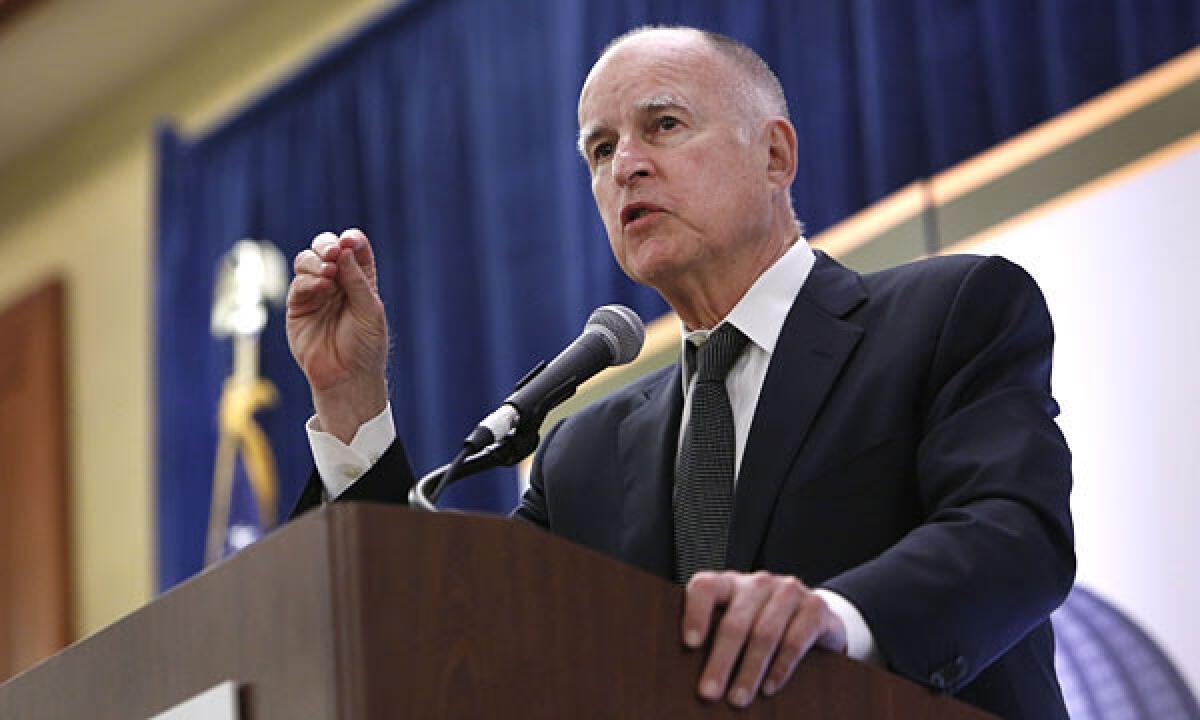Gov. Jerry Brown nips and tucks to reach California budget deal

SACRAMENTO -- Reaching a deal on the state budget required juggling various numbers on spending, tax revenue and debt repayments to make everything fit.
Democratic lawmakers agreed to use Gov. Jerry Brown’s more conservative estimates on state income tax revenues, but they still wanted to find room for additional spending on education, social services and healthcare.
So Brown agreed to use more optimistic estimates for property taxes, which freed up about $300 million because it reduced the state’s obligation to fund schools. And he lowered his estimate on the cost of implementing the federal healthcare overhaul, leaving another $80 million up for grabs.
More money was needed for compromises on education spending. That was accomplished by reducing plans to repay money owed to schools by roughly $650 million, delaying Brown’s effort to chip away at the state’s “wall of debt.”
All of the shifts made room for more spending on mental health treatment, career training, new school curriculum standards and other programs.
The final budget compromise is pegged at $96.28 billion in general fund spending -- a bit lower than the revised budget proposal that was released in May, which was $96.35 billion. The smaller total is the result of the higher property tax estimate, which relieved pressure on the state budget.
In addition, not all of the spending increases sought by lawmakers are being paid for out of the general fund. For example, higher welfare payments to families would be covered by a separate dedicated account that is generally reserved for county programs.
Brown, Senate leader Darrell Steinberg (D-Sacramento) and Assembly Speaker John A. Pérez (D-Los Angeles) are scheduled to discuss the budget deal with the media Tuesday afternoon in the Capitol.
The budget still needs to be approved by the full Legislature and signed into law by the governor before it can take effect July 1.
ALSO:
Gov. Jerry Brown to discuss state budget deal
Chief justice ‘encouraged’ by partial courts restoration
Largest California state workers union says pay raises on the way
More to Read
Start your day right
Sign up for Essential California for news, features and recommendations from the L.A. Times and beyond in your inbox six days a week.
You may occasionally receive promotional content from the Los Angeles Times.







